
UNICEF brings cash assistance relief to families in Ukraine
02/05/2024
Amid war and displacement, humanitarian cash transfers play a vital role in supporting the most vulnerable families in Ukraine. Without this support, damaged infrastructure and soaring inflation can leave many struggling to afford to heat their homes or feed their children.
Since March 2022, families with children have received a lifeline, thanks to the humanitarian cash transfer programme run by UNICEF, with the support of the European Union (EU). Between March 2022 and December 2023, 282,828 families received cash transfers, among them 762,274 children and at least 69,467 children with disabilities.
“The ongoing war in Ukraine has caused immense suffering to hundreds of thousands of innocent children and their families,” says Claudia Amaral, Head of Office for the EU’s Humanitarian Aid in Ukraine.
“The European Union is fully committed to providing immediate assistance to the children of Ukraine, as they are one of the most vulnerable groups in the conflict. Working alongside humanitarian partners such as UNICEF, we aim to ensure that life-saving aid reaches those who need it the most.”
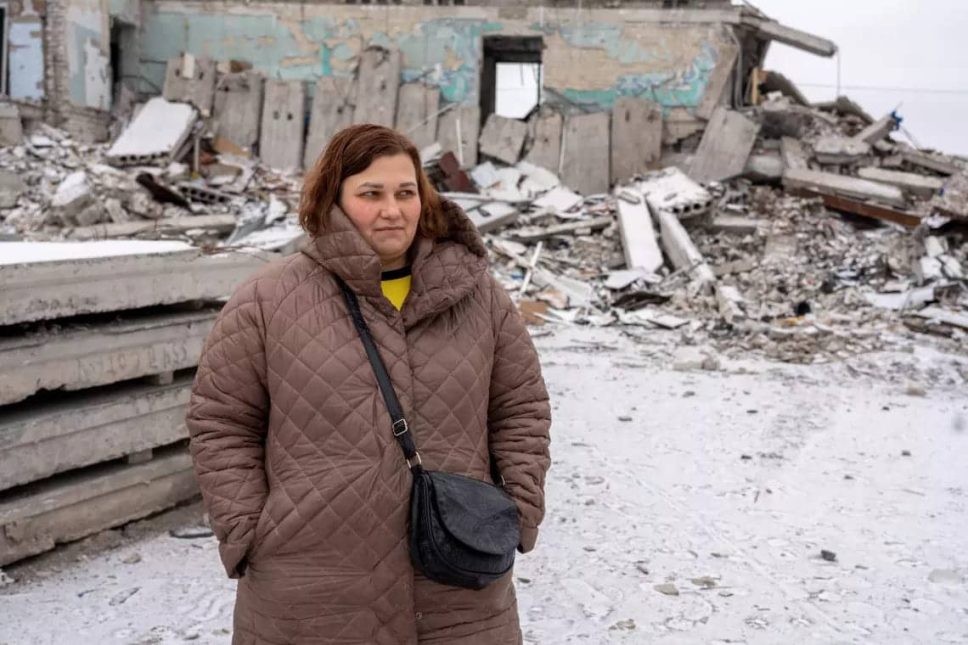
Inna and her four children are among those who are rebuilding their home thanks to the cash transfers.
“Our area has suffered a lot. Two schools, a hospital and some neighbouring houses were destroyed,” says Inna, sadly.
“When our apartment was hit by a shell, we didn’t know whether we should be happy to stay alive or cry because of the destroyed building”
When a shell hit her children’s bedroom, Inna grew desperate. She did not have the money to replace the windows and protect their home from the cold. The humanitarian cash transfer programme helped the family with funds for construction materials.
“I bought tiles, a special foil to prevent the windows from falling out and cement to renovate the children’s room,” says Inna, happily.
“It’s a lot of money for us and, without UNICEF’s help, this renovation would be impossible.”
Due to the shelling, Inna lost her job when the house where she was employed as a cleaner was destroyed.
“After the war started, I cleaned a house in Kharkiv,” she says. “But later, the house owners called and told me there was no need to clean it anymore because the house had been ruined. It was destroyed by a bomb.”
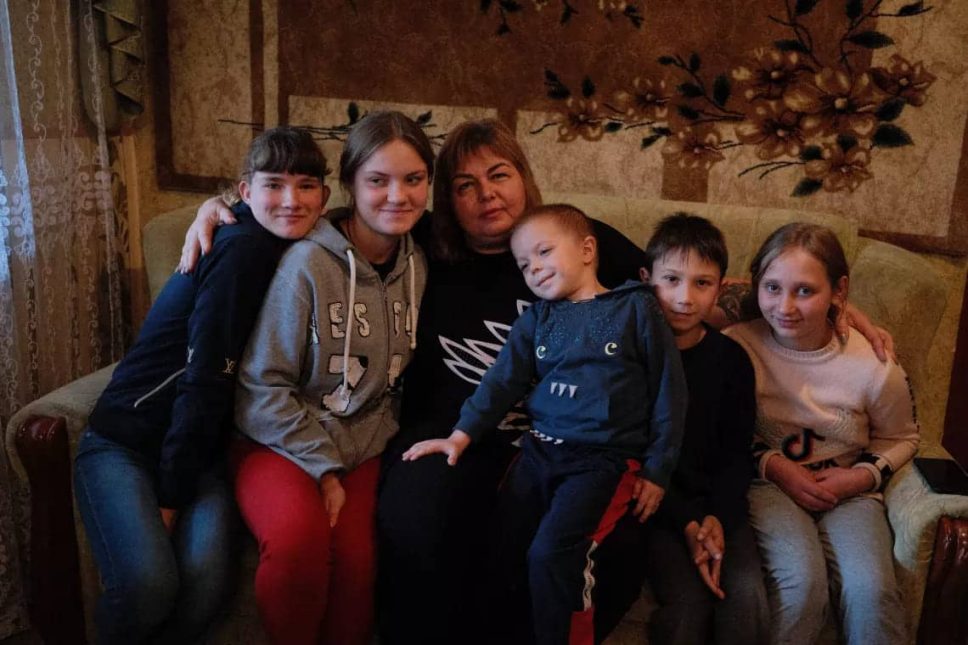
When the full-scale war broke out in February 2022, Oksana, 46, from the Kharkiv region was separated from her foster children.
“The war started like a nightmare,” she recalls. “The children were at a holiday resort, while we were at home. My youngest daughter, my daughter-in-law, my two grandkids and I were left alone.”
After four long months, despite the ongoing shelling and violence, Oksana and her foster children were finally reunited. But life in their town had changed dramatically – food was scarce, prices were high and the nearest open shop was 60 kilometres away. When food became three or even four times more expensive, feeding her family became near impossible.
“We started to freeze bread as a reserve,” says Oksana.
UNICEF provided financial assistance to Oksana and her family. They used the funds to buy food and to build a shelter in the basement of the garage that could help to protect them during shelling. Part of the money was also used to repair a pumping station that supplies water to their home.
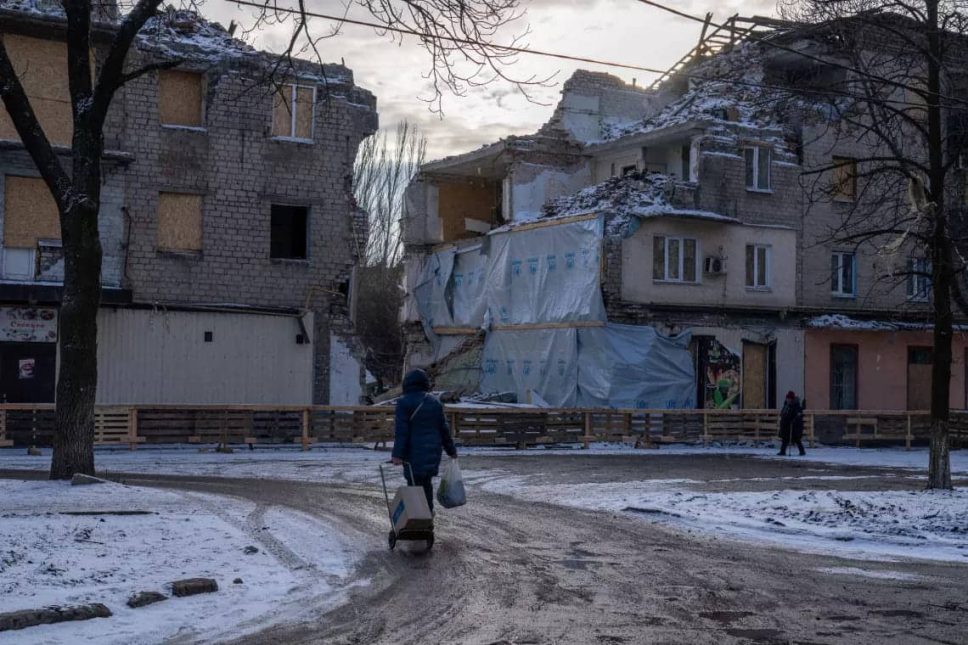
UNICEF’s winterization programme in 2023 was instrumental in providing additional support to vulnerable households, particularly in districts of the Dnipro, Kharkiv, Zaporizhzhia and Donetsk regions. Through cash assistance and winterization top-ups including essentials like warm clothing for children, thousands of families received aid to meet their winter-related needs.
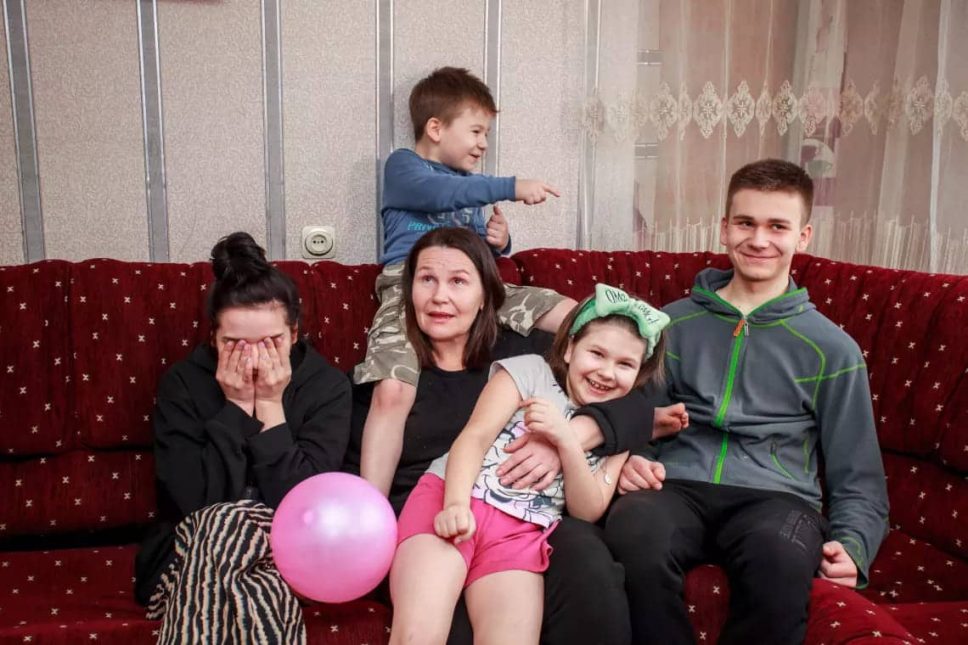
With cash assistance from UNICEF, Svitlana and her four children were able to purchase food, warm clothing and pay the rent for their small apartment.
“This assistance helped us to feel more secure about our tomorrow”
“I realised that I was not alone,” says Svitlana, who lives under constant shelling in the Dnipro region.
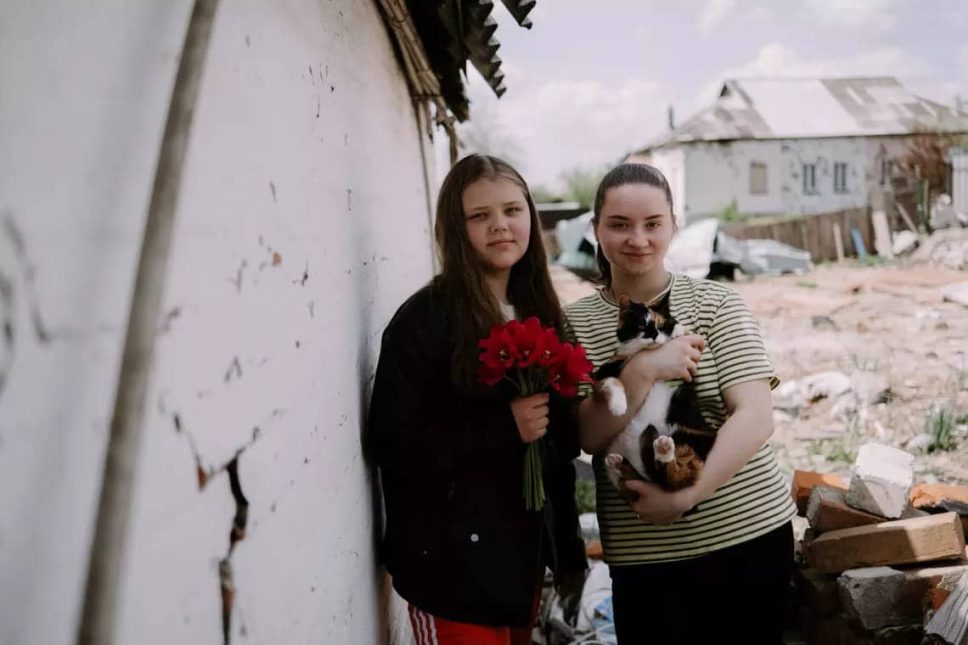
Thirteen-year-old Ilona and her 22-year old sister Daiana from Krasnohrad, Kharkiv region, lost their parents in a missile attack. The family home was destroyed beyond repair, leaving Ilona homeless. Daiana and her partner stepped in to care for the youngster.
“I realised that was the only option,” says Daiana. “I would not be able to let her go. She is my family.”
Financially, it was a struggle. UNICEF provided Daiana and Ilona with financial support to help buy clothes and shoes, and ensured she received the mental health support to help her overcome trauma she had endured.
Collaboration between the Ministry of Social Policy of Ukraine and UNICEF helped to extend assistance to families in need, including those with multiple children and children with disabilities. The aid was provided to 55,000 families with three or more children that had applied for assistance through the ‘e-Dopomoga’ platform in 2022, as well as 11,000 families with children living with a disability in 2023.
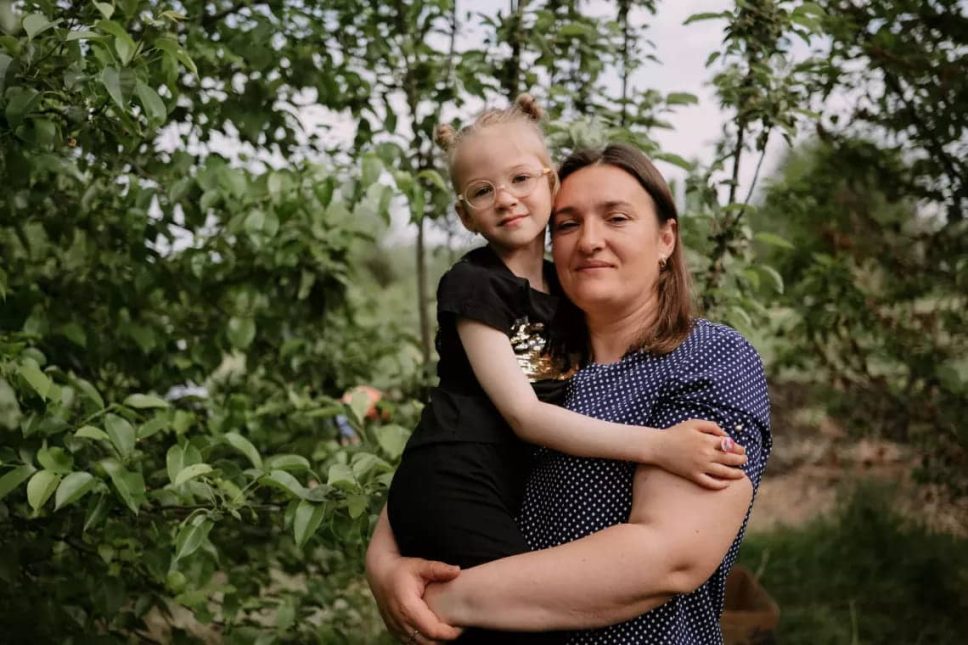
Natalia and her husband have three daughters – Ksenia, 15, Oleksandra, 8, and two-year-old Marichka. When the war broke out, their hometown in the Kharkiv region came under fierce attack, with the frontline just two kilometres away.
Then, in September 2022, Natalia’s six-year-old niece Polina lost her parents in a shelling attack. With a fourth child to care for, Natalia and her husband struggled financially. The fighting on the outskirts of the town continued and the job market was tough.
“We had no money,” recalls Natalia. “Even if payments for children came, they were transferred to a bank account, the nearest branch of which was 80 kilometres away. To get there, we needed money and fuel.”
Help soon arrived in the form of cash payments from UNICEF. With this money, Natalia and her husband were able to buy food, the price of which had multiplied, and medical treatment, since Polina has serious vision problems.
UNICEF’s partnership with the European Union has provided a lifeline for vulnerable families and children in Ukraine, many of whom have lost their homes and livelihoods. Amid the continued violence and uncertainty of the war, humanitarian cash transfers not only help these families get by, but also empower them by enabling them to address their urgent needs.
Stories
-
Katarina Mathernova: If Ukraine had a human face and a human spirit, it would be 10-year-old Roman Oleksiv
-
A regional mission to drive social entrepreneurship: the story of Ksenia Kosukha
-
EU restores safe water supply for 100,000 Ukrainians affected by war
-
Promoting IT during the war: Lviv IT cluster and how EU4Digital helps
-
Frontline digitalisation: Kharkiv IT Cluster collaborations
-
How EU4Youth is driving opportunity and success among young Ukrainians